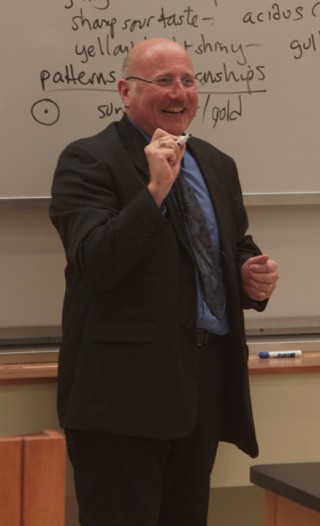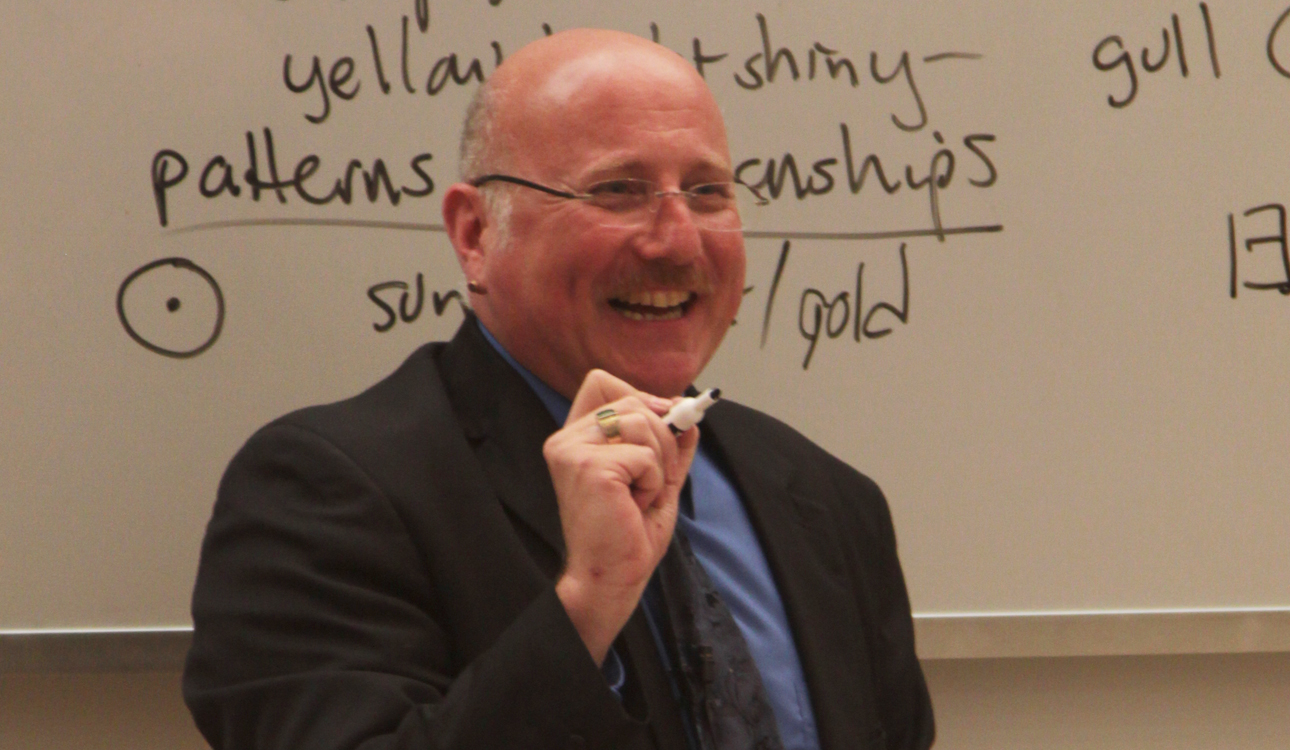
Ambika Kashi Singh | Lariat Photographer
By Robyn Sanders
Reporter
“Everything is connected” was the simple message of Dr. Brian Coppola’s lecture on Wednesday afternoon in the Baylor Sciences Building.
Coppola is the third and last finalist for the Robert Foster Cherry Award for Great Teaching to present at Baylor. His lecture, “The Liberal Art of Chemistry: Stories about Human Nature,” was about the importance of stories and language for learning.
“In my chemistry classes, I like to use chemistry as a starting point to make the connection to other areas, so that the sense is that [the] learning of chemistry does in fact have relevance to other things,” Coppola said.
Coppola said the most prevalent way to introduce young people to knowledge is through schooling.
“Schooling is inherently weird because knowledge has been, to pick an ‘Iron Chef’ metaphor, chopped up, diced up, separated, neatly grated in different classrooms, in different buildings,” Coppola said.
Language and symbols, Coppola continued, have reinforced the separation between fields of study, although their purpose was to simplify communication, not make it incomprehensible.
“You often need a translator, and wish you had one, to understand what someone barely outside your area is talking about, because we develop language that creates, at the same time, community and isolation,” Coppola said. “Words and pictures are really meant to be useful in communicating things.”
Coppola’s message to students was for them to pick a few subjects, learn about them and uncover something new about them.
“It might be linguistics. It might be history. It might be philosophy. It might be art. It might be biology. But you’re probably going to be better off if it’s more than one thing,” Coppola said. “Pass it on because in the end…you want the world to think a little differently about itself because you were here to tell your story.”
Coppola said, following the lecture, that his favorite thing about teaching is building lifelong relationships with students and forming a lasting community of learners.
“I really see students as partners and continue to want to learn from them as they learn from me, and that doesn’t end when a class ends, or that doesn’t end when people graduate,” Coppola said. “And a thing that I cherish the most is, in fact, the continuing dialogue with the people that I’ve had as students through right now.”
Coppola is the Arthur F. Thurnau Professor of Chemistry at the University of Michigan.
Dr. Michael Thompson, chair of the Robert Foster Cherry Award Committee, introduced the lecture and gave background information on the Cherry Award.
“The first award was in 1991. It has grown significantly to be what we think is the largest teaching award in North America,” Thompson said. “The selection process started over a year ago. There were more than 100 applicants, most of them from the United States, but a few internationals sprinkled in.”
Dr. Patrick Farmer, chair and professor of the chemistry department at Baylor said throughout Coppola’s career, he has developed the art of teaching.
“He’s been at the forefront of the re-evaluation of the teaching of chemistry in the United States,” Farmer said.
The Cherry Award is designed to honor great teachers and the value of teaching.
All of the finalists receive $15,000, as well as $10,000 for their academic department.
The winner of the award, to be announced in the spring, will win $250,000 and one-year teaching position at Baylor.






